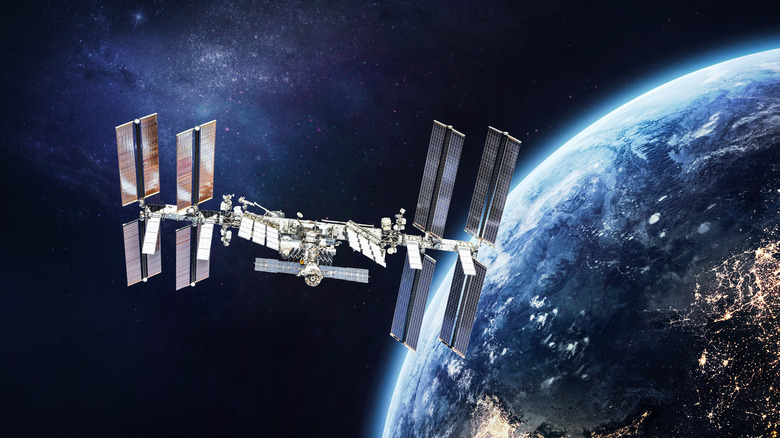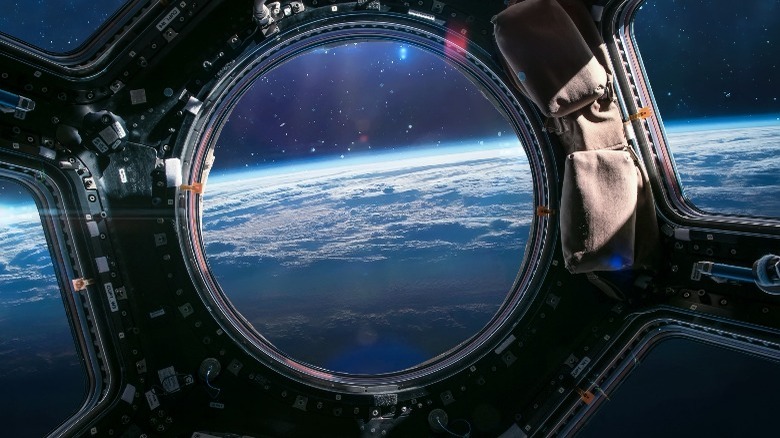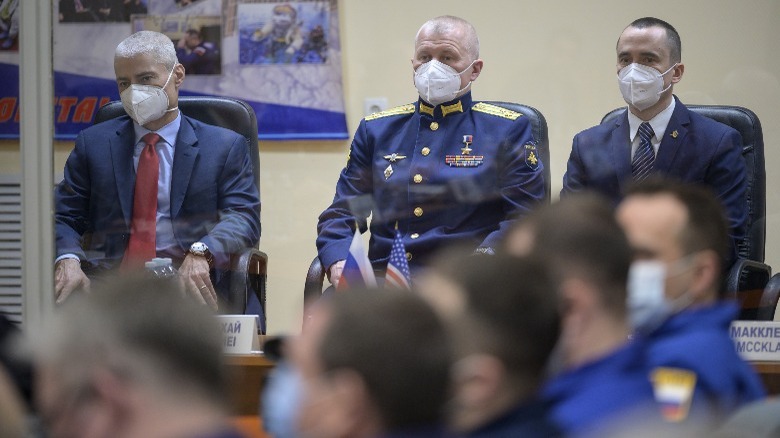What The New Russian Sanctions Mean For The International Space Station
Following Russia's decision to invade Ukraine, the country was hit by a barrage of U.S.-led economic sanctions. Intended to limit Russia's ability to conduct business with the rest of the world and isolate the country, these sanctions have led to the Russian people being effectively cut off from the global financial system, posing a real threat to the Russian economy.
The consequences of these sanctions on the lives of ordinary Russian citizens include the inability to make payments using their MasterCard and VISA cards, limited access to global payment services, and, more recently, the inability to buy Apple products.
While the larger economic and social impact of these sanctions on Russia should become evident in the next few weeks, there is now a real threat of this conflict spreading far beyond the Russian borders and into the realm of science and technology.
U.S. President Joe Biden has already indicated that the sanctions would have a crippling effect on Russia's aerospace industry. In response, Russian officials have suggested* that they could remove themselves from the International Space Station project – a collaborative effort backed by space agencies of five different nations.
The U.S. and Russia are the most significant contributors to the ISS project, and ROSCOSMOS control key aspects of the space station. Therefore, concerns that further escalation in tensions may jeopardize the functioning of the International Space Station is quite realistic, and many people worry about the project coming to a premature end.
What has Russia said?
*Concerns about the future of the International Space Station arose after the chief of Russia's space agency ROSCOSMOS — General Dmitry Rogozin, reminded everyone that it was Russia who controlled the thrusters that kept the International Space Station in orbit.
The basic gist of his tweet thread was that if Russia decides to shut down its thrusters, there is a chance of the 500-ton ISS entering an uncontrolled orbit and falling into United States territory. His tweets also specifically mentioned India and China — both of which are also at the risk of being hit by the debris of the ISS in the event of an uncontrolled orbit. He was also quick to add that Russia itself isn't at the risk of being hit by the debris because the ISS because the spacecraft does not orbit above Russian territory.
Given that we are staring at a possible global conflict that some say could spiral into World War 3 – and everything that has happened in the past few days seem unreal – how credible is this threat from Russia? Could they actually pull the plug on the International Space Station and cause it to come crashing down to earth? Can someone else take over the Russian-made thrusters and save the ISS? And what happens to the ISS in the long run?
Is the International Space Station doomed?
Having circled the earth for 23 years, the ISS cannot stay in orbit forever. In fact, it was earlier this year that NASA announced its intention to bring the International Space Station project to an end by the next decade. As per current plans, NASA plans to deorbit the ISS by January 2031.
Given that the International Space Station is currently manned by a crew of seven that includes Russian cosmonauts, there is little chance that Russia has any immediate plans to end the ISS collaboration. Moreover, recent reports also indicate that the deterioration of relations between the U.S. and Russia here on earth has had little effect on the relationship between U.S. astronauts and Russian cosmonauts aboard the ISS. NASA Associate Administrator Kathy Lueders addressed this very concern in a recent press conference (seen in video below at 52:41). She reiterated that the NASA and ROSCOSMOS teams are still working together and that everything aboard the ISS is functioning as it should.
That being said, there is a real chance of the ISS collaboration coming to an end several years before NASA's planned decommissioning date of January 2031. This is because ROSCOSMOS does not intend to renew its role on the ISS beyond 2024 — a decision made even before the current conflict started.
This effectively means that NASA and the rest of the ISS partners were already prepared for the Russians to exit the collaboration. NASA has already indicated that it is already looking for help from companies like Northrop Grumman and SpaceX to extend the life of the ISS once ROSCOSMOS – and therefore Russia – exits the International Space Station project two years from now.


